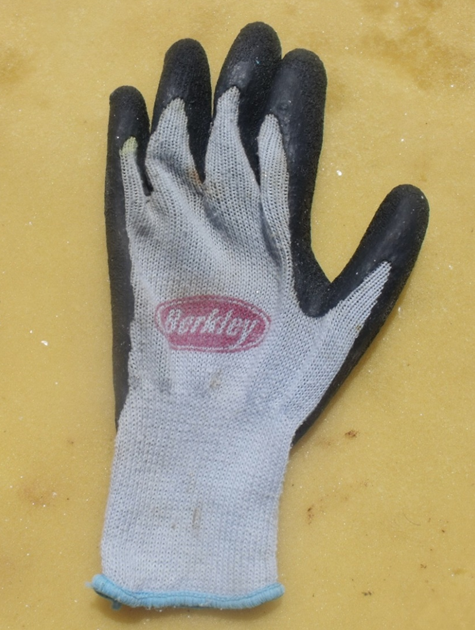Latest News
FISH’N’TIP 0780 Just When You Thought You Knew Everything About Fishing Part 2b
Monday, 9 May 2016
As stated in Part 1, in any 5 minute period, quite unbelievably, there could be literally anywhere up to 80 fish being landed carefully upon the sponge foam covered kill tables.
Mainly Snapper and an assortment of mixed reef fish, but land a hot blooded pelagic into the Frey, and without keeping the fish calm and eliminating flipping around, this scenario would have been absolute chaos – not to mention so inefficient it probably would have been a complete waste of time. In this manner, the saturated sponge bed was an outstanding success in its suspension imitation, but there was still the issue of the bare flesh of a human hand to contend with as a potential aggravation to our live catch.
Q. So how do you avoid contact with fish scales with a bare hand?
A. You cover your hand with a cotton glove of course.
With the skipper insisting that under no circumstances would any exposed human flesh come in contact with the fish (dead or alive), we also wore a cotton glove on our left hand (for right handers) – the only hand that ever came in contact with scales while sorting, sizing, returning or killing a live fish. This left your non-glove hand free to grip the killing tool and manage the massive amounts of hooks and line. The cotton glove would be soaking wet, so abrasive contact with the live animal was absolutely minimal, and once again proved a critical component in maintaining a stress free environment on deck. I’ve no doubt there’ll be the haters out there with their gripes of, ‘I’m not wearin a glove, it’s gunna be a bloody hook magnet and you’re not gunna be able to feel a flamin thing,’ or ‘A freakin cotton glove...what are ya, Michael Jackson?’, but the point is, we managed. And that unsophisticated piece of kit was part of our hand for the entire day, handling hundreds upon hundreds of fish and hooks from sunup til sundown...with absolutely no shame.
A cotton glove takes a little getting used to, but could well be considered mandatory
If a fish was accidently landed on top of another one, it would begin a chain reaction of flipping across a loaded table of fish like jumping jacks, with the short fused skipper quickly turning a menacing shade of psychotic – therefore incidents of the kind were avoided at all costs. So when landing fish, the idea was to unclip a trace from the mainline, turn to face the foam table, quickly choose a vacant space, and gently flick the fish by the trace onto the table while slightly pulling toward you as it lands so as not to scale it. In addition, fish larger than pan size would have their bellies supported. This enabled a safe, ‘flip free’ landing 99% of the time.
I often cringe as anglers attempt to land fish time and time again into their hands or straight onto the deck, which usually results with the fish flipping about crazily as the angler tries to subdue the animal – each tight squeeze causing another valiant struggle that quite often sees the prize flying from the supposed experienced hands like a bar of soap, only to end up back in the drink or in the bottom of the boat where the struggle and flipping continues – not to mention the damaging air exposure the fish is suffering as every second goes by. This practice is unacceptable – for the angler, for the fish, and for any chance of productivity. It is also a huge mistake that is so easily avoided with correct know-how.
‘...the good news is that all it takes for any angler – be it amateur or pro – to avoid all of this time wasting nonsense, is a piece of saturated sponge the same size as your ice box lid!’
The elite fishing personalities adorning our flat screens need to endorse such productive and safe technique, when that is what the wider audience deserves to be informed – apart from simply what bait or gear to use to get fish in the boat or bucket. But the good news is that all it takes for any angler – be it amateur or pro – to avoid all of this time wasting nonsense, is a piece of saturated sponge the same size as your ice box lid!



